Company Details
let's-grow-kids
34
739
921
letsgrowkids.org
0
LET_2563685
In-progress

Let's Grow Kids Company CyberSecurity Posture
letsgrowkids.orgLGK is a statewide movement to make Vermont the best place to raise a family and our mission is to ensure affordable access to high-quality child care for all Vermont families by 2025. We work with our partners throughout the state to build high-quality child care and we’re calling for more public investment in child care so that it’s affordable for families. Together, we will make historic change that will lead to opportunity for our children, families and Vermont’s future.
Company Details
let's-grow-kids
34
739
921
letsgrowkids.org
0
LET_2563685
In-progress
Between 700 and 749

 LGK Global Score (TPRM)
LGK Global Score (TPRM)XXXX



No incidents recorded for Let's Grow Kids in 2025.
No incidents recorded for Let's Grow Kids in 2025.
No incidents recorded for Let's Grow Kids in 2025.
LGK cyber incidents detection timeline including parent company and subsidiaries

LGK is a statewide movement to make Vermont the best place to raise a family and our mission is to ensure affordable access to high-quality child care for all Vermont families by 2025. We work with our partners throughout the state to build high-quality child care and we’re calling for more public investment in child care so that it’s affordable for families. Together, we will make historic change that will lead to opportunity for our children, families and Vermont’s future.

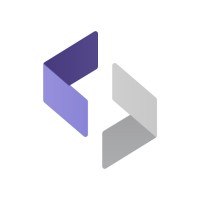
The National Governors Association (NGA)—the bipartisan organization of the nation's governors—promotes visionary state leadership, shares best practices and speaks with a collective voice on national policy. Founded in 1908, the National Governors Association (NGA) is the collective voice of the na
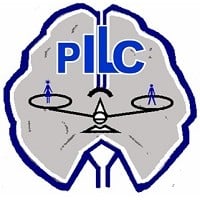
Le PILC, Centre Juridique d'intérêt Public est une association de droit tchadien à but non lucratif et apolitique créé en 2006. Le PILC a pour mission de s'attaquer aux causes fondamentales des violations des Droits Humains au Tchad en favorisant l'accès des personnes démunies, particulièrement les
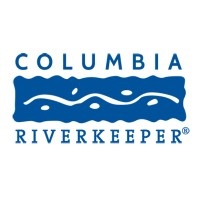
Columbia Riverkeeper protects and restores the water quality of the Columbia River and all life connected to it, from the headwaters to the Pacific Ocean. Representing a diverse coalition of members and interests, Columbia Riverkeeper works to restore a Columbia River where people can safely eat the
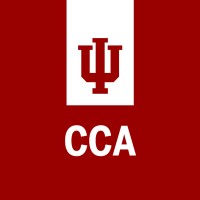
The Center for Cultural Affairs at the O’Neill School of Public and Environmental Affairs advances the understanding of the place of arts and culture in public life. The CCA facilitates a network of scholars and practitioners interested in advancing cultural affairs research, produces high-quality a

Dobson DaVanzo & Associates, LLC is a health care consulting firm based in the Washington. D.C. metropolitan area. The work of our principals has influenced numerous public policy decisions, and appears in legislation and regulation. Our research helps payers and providers develop, implement, and ev
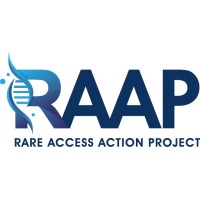
Many rare disease patients believe that because they have coverage (commercial, Medicaid or Medicare) that they will be able to utilize the medicine or technology that was developed for their rare disease. Unfortunately, this is not always the case. After rounds of prior authorizations and appeals,
.png)
This Community Voices column is by April F. Draine, a parent of three kids who shares stories and advice for raising responsible humans.
Roblox is generally safe but beware of scammers, predators, and identity theft risks. Parental guidance and cybersecurity measures are crucial for...

Explore insights on cybersecurity incidents, risk posture, and Rankiteo's assessments.
The official website of Let's Grow Kids is http://www.letsgrowkids.org.
According to Rankiteo, Let's Grow Kids’s AI-generated cybersecurity score is 744, reflecting their Moderate security posture.
According to Rankiteo, Let's Grow Kids currently holds 0 security badges, indicating that no recognized compliance certifications are currently verified for the organization.
According to Rankiteo, Let's Grow Kids is not certified under SOC 2 Type 1.
According to Rankiteo, Let's Grow Kids does not hold a SOC 2 Type 2 certification.
According to Rankiteo, Let's Grow Kids is not listed as GDPR compliant.
According to Rankiteo, Let's Grow Kids does not currently maintain PCI DSS compliance.
According to Rankiteo, Let's Grow Kids is not compliant with HIPAA regulations.
According to Rankiteo,Let's Grow Kids is not certified under ISO 27001, indicating the absence of a formally recognized information security management framework.
Let's Grow Kids operates primarily in the Public Policy Offices industry.
Let's Grow Kids employs approximately 34 people worldwide.
Let's Grow Kids presently has no subsidiaries across any sectors.
Let's Grow Kids’s official LinkedIn profile has approximately 739 followers.
No, Let's Grow Kids does not have a profile on Crunchbase.
Yes, Let's Grow Kids maintains an official LinkedIn profile, which is actively utilized for branding and talent engagement, which can be accessed here: https://www.linkedin.com/company/let's-grow-kids.
As of November 28, 2025, Rankiteo reports that Let's Grow Kids has not experienced any cybersecurity incidents.
Let's Grow Kids has an estimated 1,023 peer or competitor companies worldwide.
Total Incidents: According to Rankiteo, Let's Grow Kids has faced 0 incidents in the past.
Incident Types: The types of cybersecurity incidents that have occurred include .
.png)
Angular is a development platform for building mobile and desktop web applications using TypeScript/JavaScript and other languages. Prior to versions 19.2.16, 20.3.14, and 21.0.1, there is a XSRF token leakage via protocol-relative URLs in angular HTTP clients. The vulnerability is a Credential Leak by App Logic that leads to the unauthorized disclosure of the Cross-Site Request Forgery (XSRF) token to an attacker-controlled domain. Angular's HttpClient has a built-in XSRF protection mechanism that works by checking if a request URL starts with a protocol (http:// or https://) to determine if it is cross-origin. If the URL starts with protocol-relative URL (//), it is incorrectly treated as a same-origin request, and the XSRF token is automatically added to the X-XSRF-TOKEN header. This issue has been patched in versions 19.2.16, 20.3.14, and 21.0.1. A workaround for this issue involves avoiding using protocol-relative URLs (URLs starting with //) in HttpClient requests. All backend communication URLs should be hardcoded as relative paths (starting with a single /) or fully qualified, trusted absolute URLs.
Forge (also called `node-forge`) is a native implementation of Transport Layer Security in JavaScript. An Uncontrolled Recursion vulnerability in node-forge versions 1.3.1 and below enables remote, unauthenticated attackers to craft deep ASN.1 structures that trigger unbounded recursive parsing. This leads to a Denial-of-Service (DoS) via stack exhaustion when parsing untrusted DER inputs. This issue has been patched in version 1.3.2.
Forge (also called `node-forge`) is a native implementation of Transport Layer Security in JavaScript. An Integer Overflow vulnerability in node-forge versions 1.3.1 and below enables remote, unauthenticated attackers to craft ASN.1 structures containing OIDs with oversized arcs. These arcs may be decoded as smaller, trusted OIDs due to 32-bit bitwise truncation, enabling the bypass of downstream OID-based security decisions. This issue has been patched in version 1.3.2.
Suricata is a network IDS, IPS and NSM engine developed by the OISF (Open Information Security Foundation) and the Suricata community. Prior to versions 7.0.13 and 8.0.2, working with large buffers in Lua scripts can lead to a stack overflow. Users of Lua rules and output scripts may be affected when working with large buffers. This includes a rule passing a large buffer to a Lua script. This issue has been patched in versions 7.0.13 and 8.0.2. A workaround for this issue involves disabling Lua rules and output scripts, or making sure limits, such as stream.depth.reassembly and HTTP response body limits (response-body-limit), are set to less than half the stack size.
Suricata is a network IDS, IPS and NSM engine developed by the OISF (Open Information Security Foundation) and the Suricata community. In versions from 8.0.0 to before 8.0.2, a NULL dereference can occur when the entropy keyword is used in conjunction with base64_data. This issue has been patched in version 8.0.2. A workaround involves disabling rules that use entropy in conjunction with base64_data.

Get company history
















Every week, Rankiteo analyzes billions of signals to give organizations a sharper, faster view of emerging risks. With deeper, more actionable intelligence at their fingertips, security teams can outpace threat actors, respond instantly to Zero-Day attacks, and dramatically shrink their risk exposure window.
Identify exposed access points, detect misconfigured SSL certificates, and uncover vulnerabilities across the network infrastructure.
Gain visibility into the software components used within an organization to detect vulnerabilities, manage risk, and ensure supply chain security.
Monitor and manage all IT assets and their configurations to ensure accurate, real-time visibility across the company's technology environment.
Leverage real-time insights on active threats, malware campaigns, and emerging vulnerabilities to proactively defend against evolving cyberattacks.




